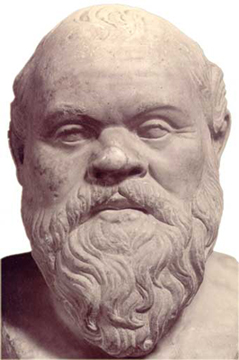Palaeoanthropologists and archaelogists build up elaborate models of various
species that, from fossils, look close in bone structure to modern humans and also associate
these with various artifices (tools, primitive musical instruments, jewellery
etc.), cave art, burial customs and evidence of hunting or gathering habits. (When you compare paleontology and paleo-anthropology with physics you realize just how inexact are these fields.)
I am not a professional scholar but my understanding
is that the standard model of evolution has Homo sapiens emerging up to around
1 million years ago. Yet I feel there must be something wrong here. If
people like us were thinking, acting, innovating and philosophizing that long why have we not already gone to other worlds long ago, or explored
the limits of the universe or unlocked a wealth of secrets of the natural
world? Why did it take so long to develop language, abstract thought, science
and mathematics and to invent technology in a whole different ball park from
that of any other species?
The earliest signs of civilised societies appear to date
back to only around 10,000 BC, if not in Mesopotamia (approximately today's Iraq, in the area of the Tigris- Euphrates river system) then somewhere in that region (possibly Iran). Since then we have developed at a huge rate. What were
our ancestors doing for the hundreds of millenia prior to that? Even 100,000 years is a
long time in human history – 10 times as long as from the first real evidence
of civilisation until today. Were we just clubbing each other, sitting round
camp fires cooking meat and telling each other stories for a million years and
then suddenly there was a quantum jump into a totally new mode of existing and
evolving?
 |
| Socrates |
Nobody, to my knowledge, has explained how new species appear.
All we know is that phenomenonally complex, integrated, sophisticated,
intelligent, purposeful processes occur at the DNA level and somehow this is
connected with speciation and interaction with the environment. We also
know, from the fossil record, that new species appear suddenly, not
gradually, and that these, while sharing certain traits, are different in architecture and functional organization from any preceding species. We are very
different even from the other primates (elaborate tool making, art, language, symbolism,
abstract thought, irony, humour, mathematics, literature, quantum mechanics,
cosmology, biology, geology, non-survival directed curiosity, constant
innovation, town and city planning, space travel, aviation, internet, iPhones,
radio, TV, YouTube, nuclear energy etc. etc. plus worship of our Creator, free
will, concern for the well being of other people, of other creatures and of the
whole planet).
to
was not a gradual advance but a discontinuous one. There was a quantum jump when modern man appeared in the last 50,000 years. Agriculture and civilization rose rapidly from what seems to have been continual pervasive tribal and family violence, replacing it with a way of life that was less uncertain and frightening because order was maintained by brutal laws. Then in the first century AD the power of spiritual peace began to bring about a better world wherever Christ was not rejected: punishment became less harsh, society became more fair and rulers less violent. Around 1600 knowledge and technology in Christendom grew exponentially. The 20th century showed what happens where Christ is deliberately rejected (e.g. Maoism, Marxism and Nazism enacted a degree of violence and inhumanity not seen since pre-Christian paganism. The 21st century could be about to make the same mistake as Christ is made politically incorrect in western nations and brutally attacked in the Middle East, North Africa and Afghanistan.)
Of course, you could take the irrational way out and put it all down to chance, the old standby which explains everything and nothing and has zero predictive power or practical application.
John
author 2077 Knights of Peace